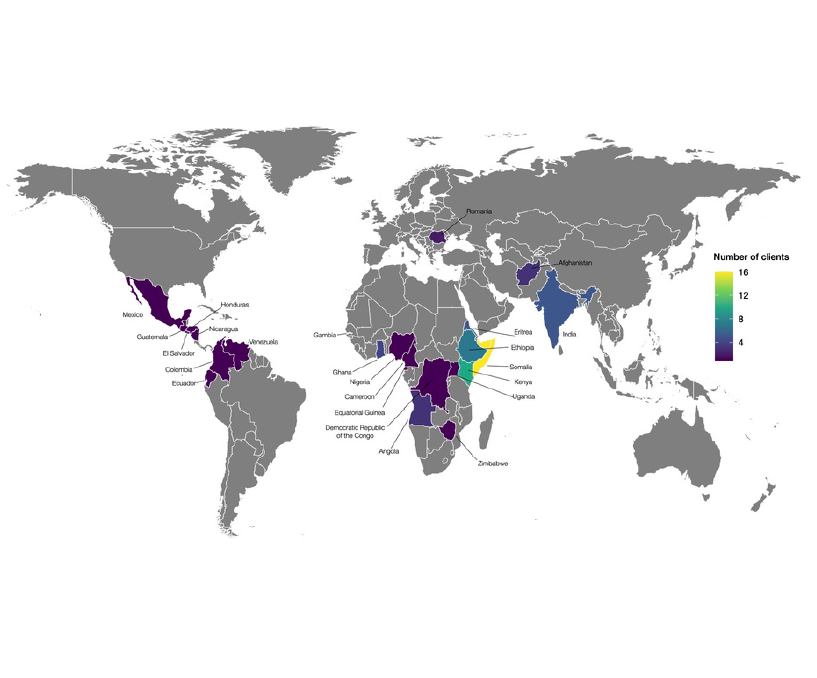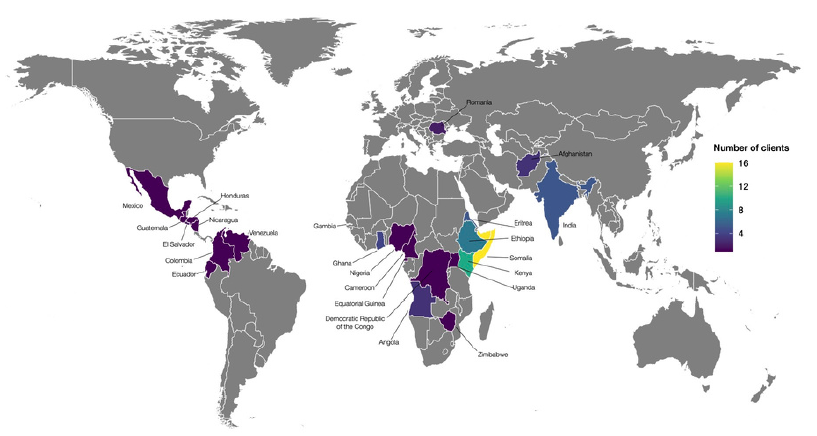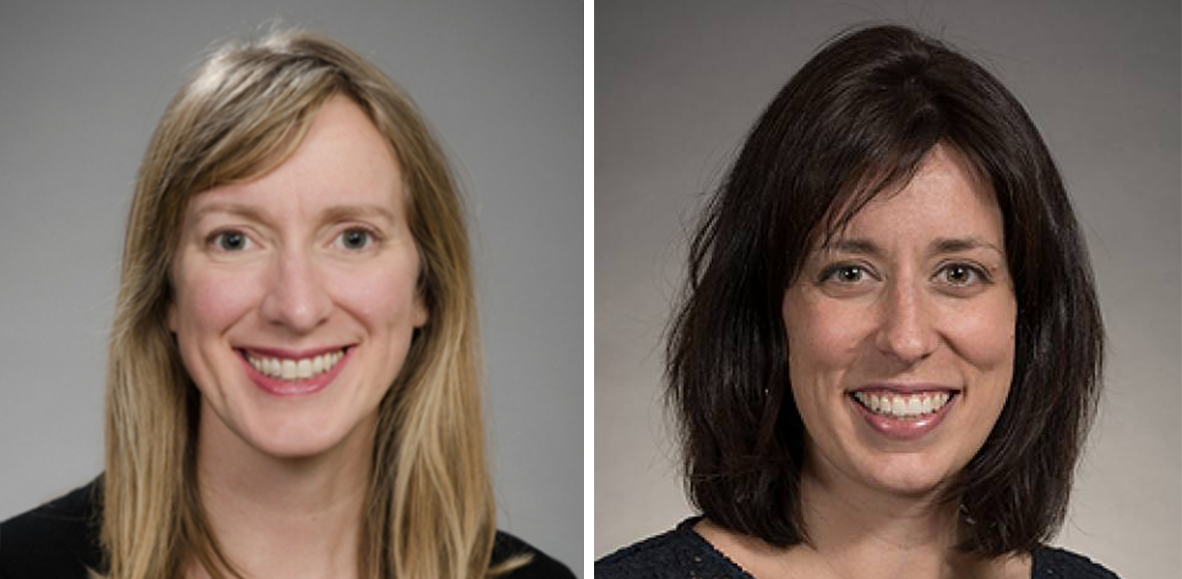

Asylum Evaluation Student Clinic
Asylum Evaluation Clinic
Washington state has historically been, and continues to be, a welcoming home to individuals and families seeking asylum in the U.S. Over the past 10 years, more than 30,000 refugees from over 70 countries have resettled in Washington state through the U.S. Refugee Admissions Program.
The most common reasons for seeking asylum among the clinic’s client population in 2023 are physical harm (90%), threats of violence (83%), membership in a particular social group (68%), political opinion (50%), and severe discrimination or economic persecution (23%).
The UWSOM Asylum Evaluation Student Clinic opened in 2021 to provide free, trauma-sensitive medical evaluations for clients as documentation to aid in asylum applications. Founded by UW medical students, the clinic is run by volunteer students and faculty supervisors in partnership with International Rescue Committee, Northwest Immigrant Rights Project, and Refugees Northwest.


Department of Medicine faculty involved in the project are General Internal Medicine’s Alexandra Molnar, MD, clinical associate professor, who serves as the clinic’s faculty advisor and an evaluating physician and Margaret Isaac, MD, FACP, associate professor, a volunteer evaluating physician.
Clinic services
Clients are referred to the clinic by partner organizations and their legal representatives. For clients just beginning the process, the clinic team can facilitate connections to these partners who can help them find representation and begin the application process.
The evaluations provided by the clinic enable clients to tell the story of their history and experiences and for the physician and medical student scribe to document any medical evidence to support the client’s asylum application.
These forensic evaluations increase the likelihood that asylum applications will be approved, allowing clients to remain in the country and gain access to employment, education, health care, and if desired, a clear path to citizenship.
Evaluations in the clinic are confidential and can be conducted in any language through the utilization of free interpreter services. The clinic can also arrange for free transportation and childcare for a client’s visit.
In addition to providing medical evaluations, the clinic seeks to support the social and economic needs of clients. The Continuation of Care team works directly with each client to connect them with essential support services such as safe housing, food, transportation, clothing, and counseling.
The team has also recently launched psychological evaluation services, providing clients with in-depth psychiatric evaluations to support their asylum claim and connections with targeted mental health resources.
“The students have worked incredibly hard to bring together an amazing service for asylum-seekers in our region,” Molnar said. “At every juncture they have thought creatively and thoroughly about what asylum-seekers need and how we can serve them best. I continue to be in awe of the outstanding work that the students bring to this very vulnerable population. “
Team
In 2023, the clinic completed a total of 582 volunteer hours and provided evaluations to support the asylum applications of 40 clients over 19 clinic days.
The team’s 9 medical faculty conduct client evaluations as well as provide mentorship for student volunteers - leading teaching sessions diving into a variety of topics focused on providing sensitive, culturally competent, and compassionate care.
30 medical student leaders across all four medical school classes oversee the daily operations of the clinic and 49 medical student volunteers support the clinic as scribes.